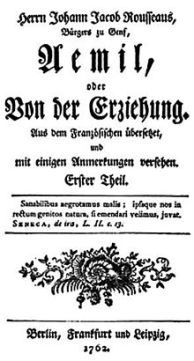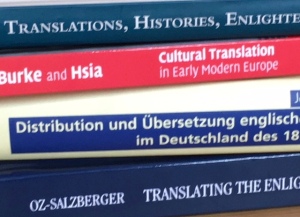
Key works of early modern social and political thought, such as Samuel von Pufendorf’s De jure naturae et gentium (1672), John Locke’s Two Treatises of Government (1689), or Jean-Jacques Rousseau’s Émile (1762) were read, used and passed around by scholars and interested lay people across Europe, contributing to the spread of ideas and knowledge across countries and borders. Yet, little is known about the translation processes and translators that enabled these texts to travel and reach their readers in their own vernacular languages. As a research group we therefore engage with the role of translation in the dissemination and reception of ideas in print across Europe during the period from the mid-seventeenth century to the French Revolution.
![Discours_sur_le_gouvernement_par_[...]Sidney_Algernon_bpt6k315700c](https://translatingcultureseurope.files.wordpress.com/2018/12/Discours_sur_le_gouvernement_par_...Sidney_Algernon_bpt6k315700c.jpeg?w=172&h=300)

In order to provide a better understanding of translators as cultural agents, a particular focus of our research is on the selective reception and adaptation of texts to suit their new readers, employing the concept of ‘cultural translation’, as distinct from ‘straight’ or literal translation (Peter Burke, 2009). Our research centres on those parts of Europe with the most lively book trades, including the British Isles, the Netherlands, France, Germany and northern Italy, but our approach is widely comparative including other European countries as well as North America. Our research also engages with broader conceptual issues, such as theories of translations and general translation practices, and the question how such cultural communication may have helped to create new ideas and identities.